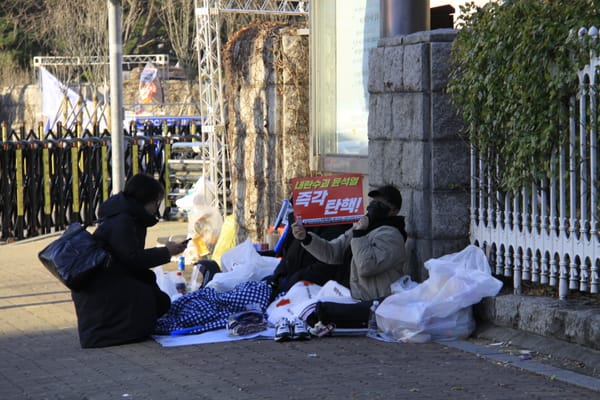Asia Undercovered Round-up: 29 March 2023
This week: Climate change in India and Bangladesh, Myanmar's upcoming so-called "election," and hope for Asia's wildlife.
Undercovered last week
All across Asia, the impacts of climate change are being felt by the poorest and more vulnerable now. In Bangladesh, climate migrants are feeling to the capital Dhaka, only to find, as Shamsuddin Illius reports for Scroll.in, that their new homes are also sinking.
Meanwhile, neighboring India has just seen its hottest February since 1901, igniting fears of widespread heat this summer and, potentially, drought too (DowntoEarth).
Unfortunately, the Indian government is focused on social battles, such as dividing Hindus and Muslims for political purposes, as happened recently in the south Indian state of Karnataka over a hijab ban. For BehanBox, G Arunima explores the history of clothing bans across the country and why women are often the target.
Another tragedy in Afghanistan as journalist Hosein Naderi was killed in a bombing of a press event, which also injured 16 other press members. The Islamic State, which opposed the Taliaban, said it was behind the attack.
Southern Nepal has been successful in growing its Tiger population and protecting wildlife around the renowned Chitwan National Park. But as more migrants enter that area, seeking work or job opportunities, there are fears that there could be more pressure on the landscape (Abhaya Raj Joshi, Mongabay).
Another loss for transparency in China. CDT reports that China Judgments Online, a database of legal documents from the Supreme Court, has removed nearly all administrative proceedings verdicts from its website – just 31 out of 554,534 remain (Alexander Boyd).

Electoral Politics
Don’t expect much from Myanmar junta-run, so called “election” later this year. A new political parties law will ensure that most opposition members, including anyone affiliated with the overthrown NLD regime, will not be able to participate (HRW)
Worth Reading: In Japan, your family matters, especially when it comes to politics, with many people taking over seats or positions from their fathers. Purnendra Jain explores these dynamics in this fascinating piece, including the future the nephew of recently assassinated PM Shinzo Abe and the son of current PM Fumio Kishida (East Asia Forum).

Geopolitics
Recently, a labor dispute resulted in a clash between Indonesian and Chinese workers at a nickel factory in Sulawesi, Indonesia – resulting in two deaths. In this piece, Song Shu looks at the incident and the challenges of building worker power when faced with racialized national politics (Asian Labour Review).
South Korea and Japan recently saw the first meeting between heads of government in a dozen years, a sign of a thawing in relations. Daniel Sneider explores what this means, whether it will stick, or if historical tensions will, again, get in the way.

Solutions Stories
This week, two stories focused on hope for Asian wildlife. In Indonesia, orangutan sightings are increasing, reports Tonggo Simansgunson, a sign that better enforcement and years of activism are having an impact.
And enjoyed this piece in Macaranga on the Malayan tiger defendor, Kai Kawanishi, who has been working for decades in Malaysia and leaves a legacy of knowledge and hope for the future of wildlife.

Reporting Done Right
Too often, reporting on climate and energy ignores geopolitical or local tensions. That was the case when India announced, last month, an enormous deposit of lithium to much fanfare. But Nitish Pahwa’s article for Slate takes a completely different approach exploring the worrying reality of this find, which was in the disputed state of Kashmir and could fuel more development that harms Kashmiris.
Kudos for Pahwa for reporting this, and Slate for shining a light on an ignored but important angle.

Asia Undercovered: Round-ups and in-depth analysis of the news, events, trends and people changing Asia, but not getting enough attention in the US media.



